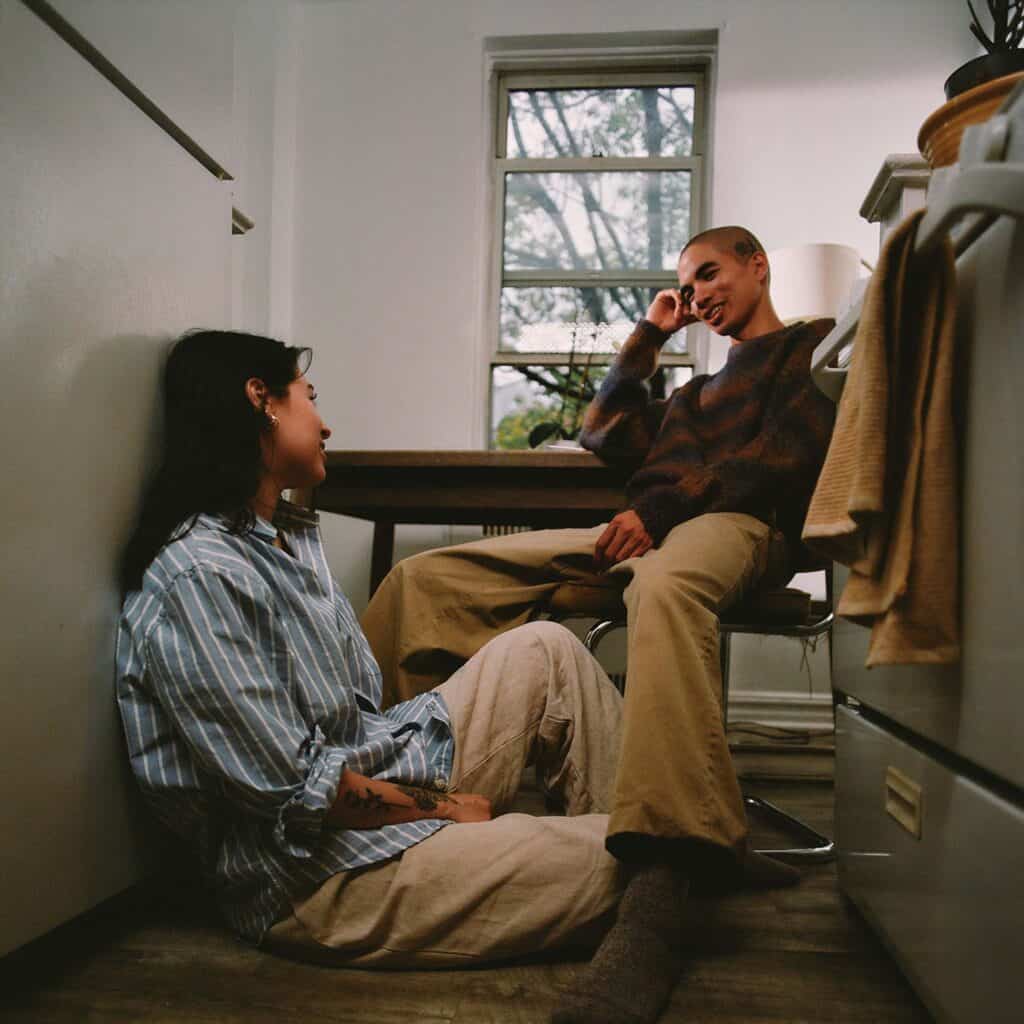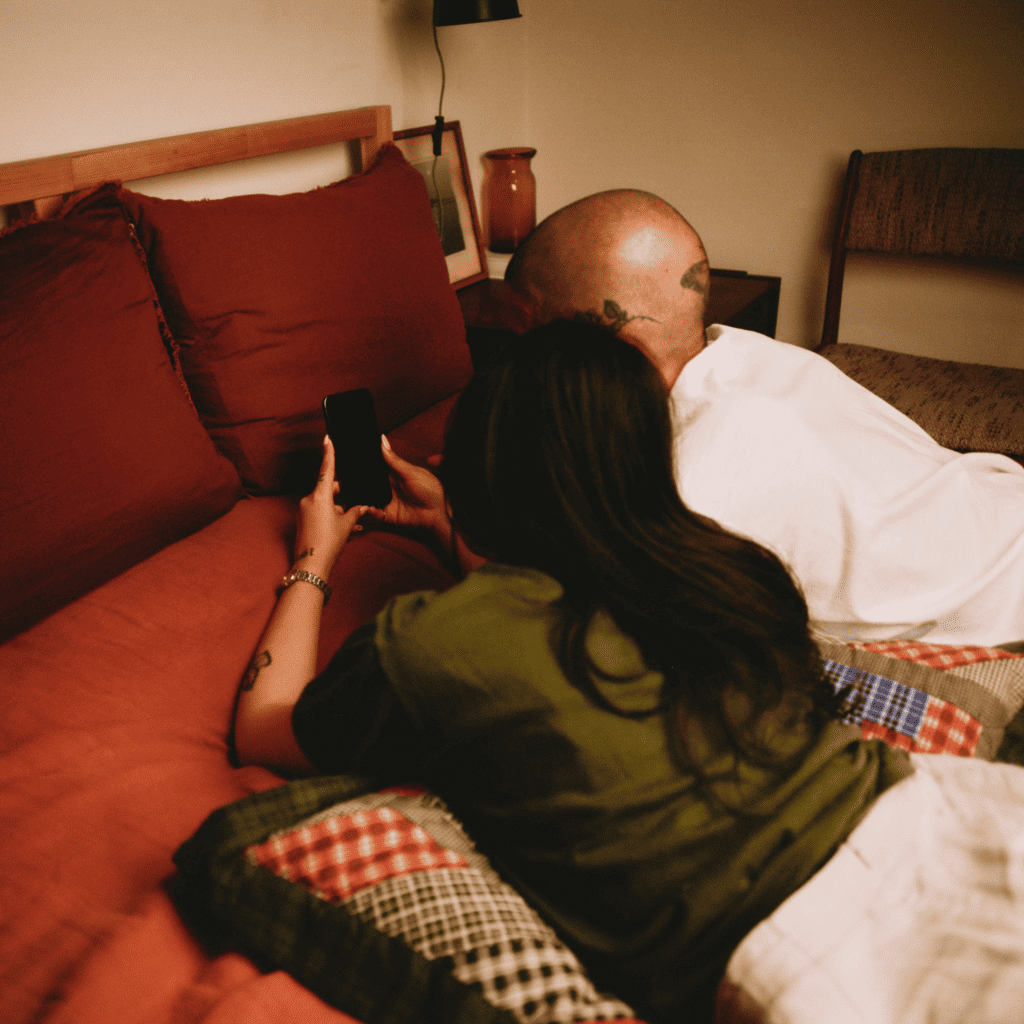General
Relationship statistics for finding a partner in 2024

contents
Where are couples most likely to meet? How did the pandemic affect relationships? And how many couples actually go to counseling? Relationships are unique, and there’s a lot to learn from the data.
Not only is the dating landscape regularly changing, but so are relationships. The relationship you’re in now may look much different than your previous ones. There’s a lot to learn from relationship statistics in the United States that can give you some perspective on how your relationship compares to others.
We’ve gathered statistics on relationships from various sources, and there are quite a few interesting findings. You’ll learn more about where most couples meet, how many couples are happy in their relationships, and marriage statistics. We also conducted some of our own research to learn more about mental health in relationships and more.
Key findings:
- 89% of people say they think there’s value in couples counseling. (Ours)
- The top barriers people face preventing them from going to couples counseling are the cost, finding the right therapist, and convincing their partner. (Ours)
- 71% of people say they wish they had more information about how to discuss big relationship topics and conflict. (Ours)
- Lesbian, gay, and bisexual people are most likely to meet their partners online. (Pew Research Center)
- The top dealbreaker when looking for a partner is if the person makes significantly more money. (Pew Research Center)
- The state with the highest marriage rate is Utah. New Mexico has the lowest marriage rate. (BGSU)
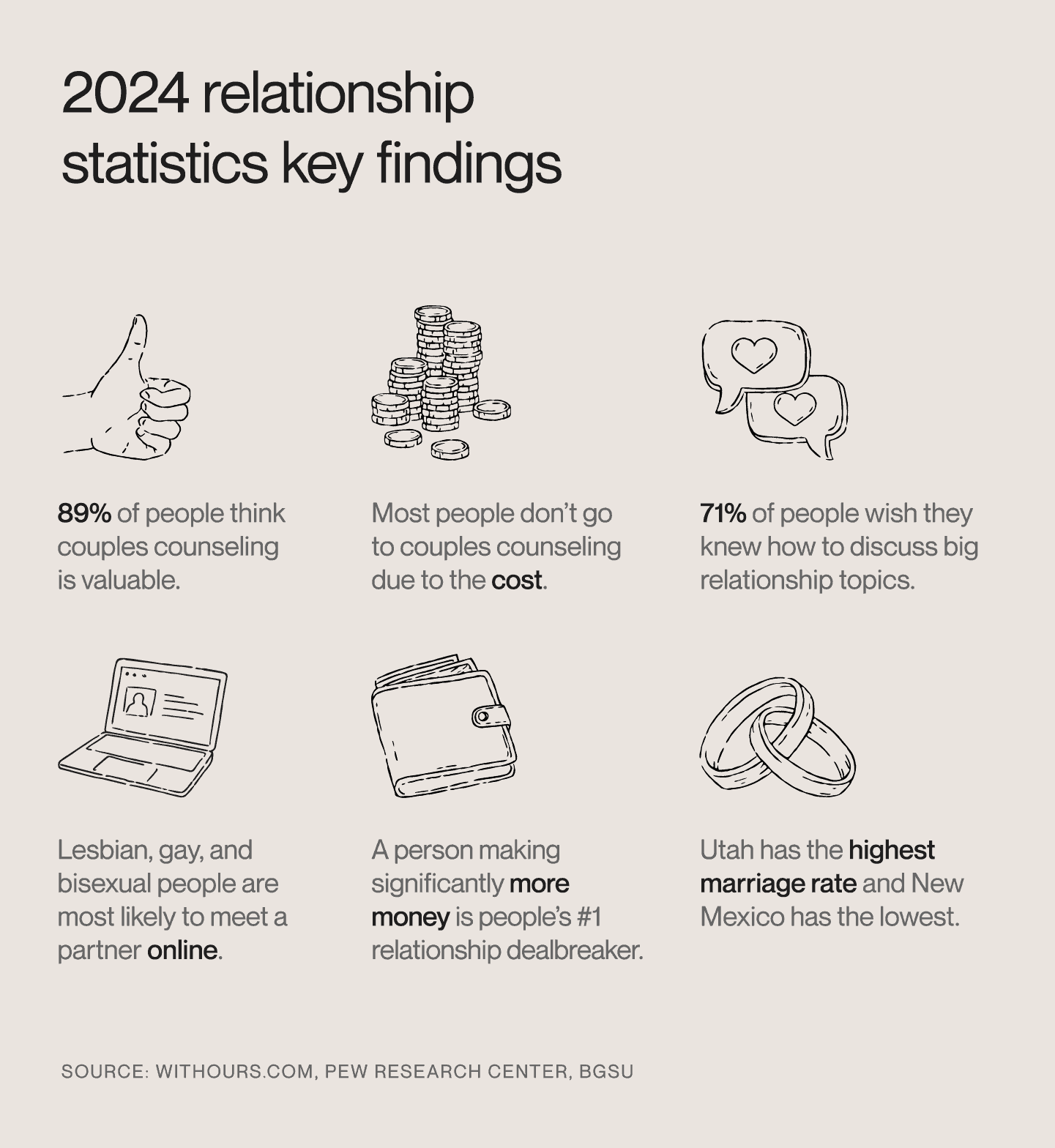
Table of contents:
- Couples counseling statistics
- Relationships and mental health
- How COVID-19 affected relationships
- Having difficult conversations
- Preferred relationship types
- Where people find their partners
- Marriage statistics
Couples counseling statistics
Couples counseling is an incredible resource for married couples and those in long-term, committed relationships. We surveyed over 500 people to see what they thought about couples counseling and how they perceived it.
89% of respondents say there’s value in couples counseling
The findings from our survey were interesting. We found that the majority of respondents think couples therapy is valuable, but a large percentage don’t give it a try.
- Eighty-nine percent of respondents thought there would be value in couples counseling. (Ours)
- Most men and women think it’s beneficial, and 84% also said even healthy relationships could benefit. (Ours)
- Of the participants, 70% said they would personally be interested in couples counseling. (Ours)
The data got even more interesting when we asked how many people have gone to couples or pre-marriage counseling. Although most respondents understand the benefits of working with a therapist as a couple, only 35% have gone.
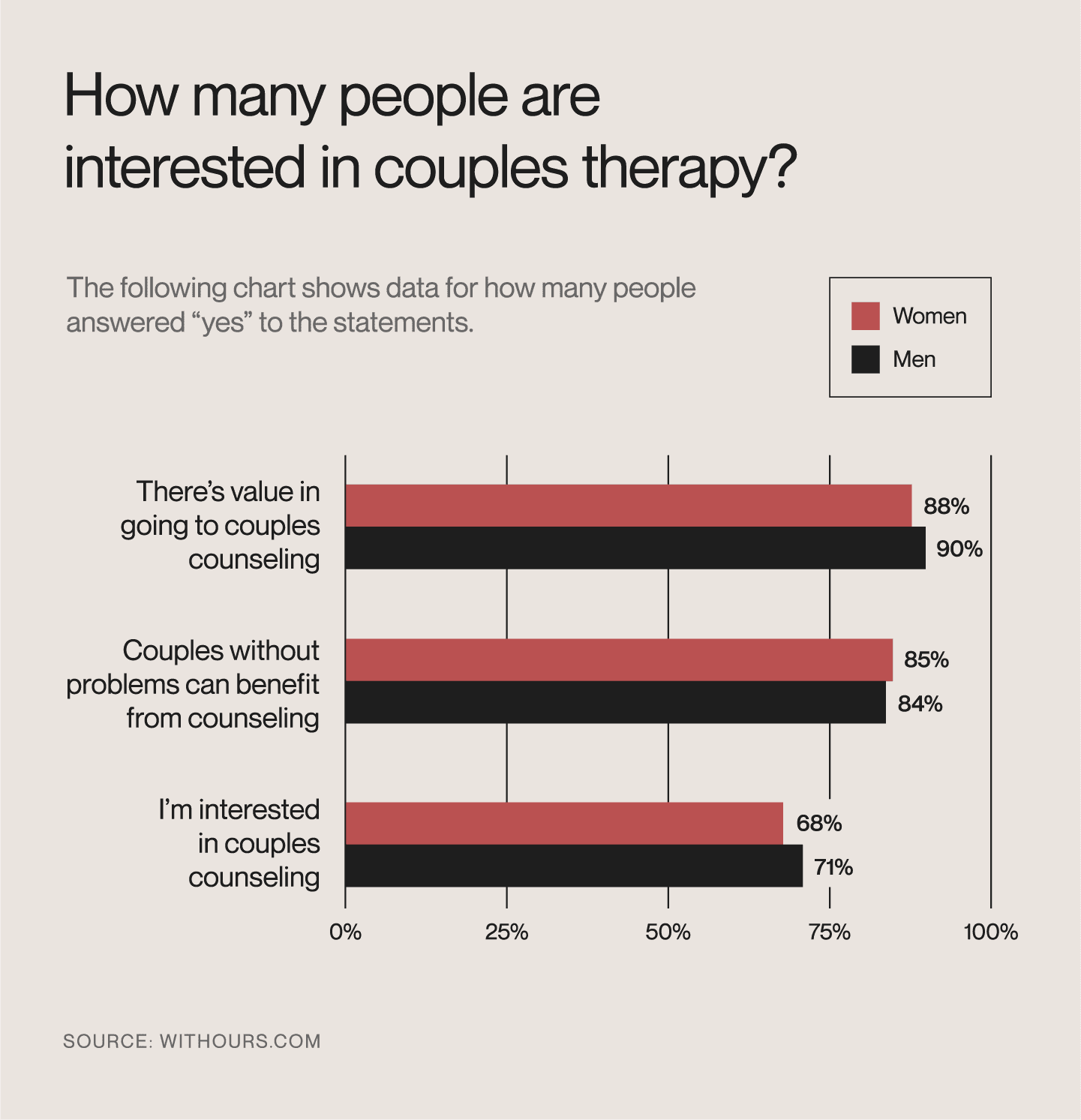
50% of respondents say it’s difficult to find the right couples therapist
With so many people agreeing that couples counseling can benefit a relationship, we wanted to learn more about the barriers they face. We asked our respondents to select all of the common barriers they felt applied, and the top reason was the cost of couples therapy.
- 55% of the respondents said cost was the primary barrier, and 50% said the next biggest barrier was finding the right therapist. (Ours)
- 38% were worried that it’d be difficult to convince their partner, and 36% said they didn’t have the time or faced other logistical issues. (Ours)
- Although the majority of respondents say they think marriage counseling works, 32% said the stigma of going to counseling was a primary barrier. (Ours)
There were also differences between the genders.
- For the cost of therapy, 60% of women said this was the primary barrier compared to 49% of men. (Ours)
- Roughly 47% of women listed convincing their partner as a barrier compared to 30% of men. (Ours)
- Men were more likely to say that the stigma around therapy and counseling is a barrier, with 38% of men and 26% of women choosing this response. (Ours)
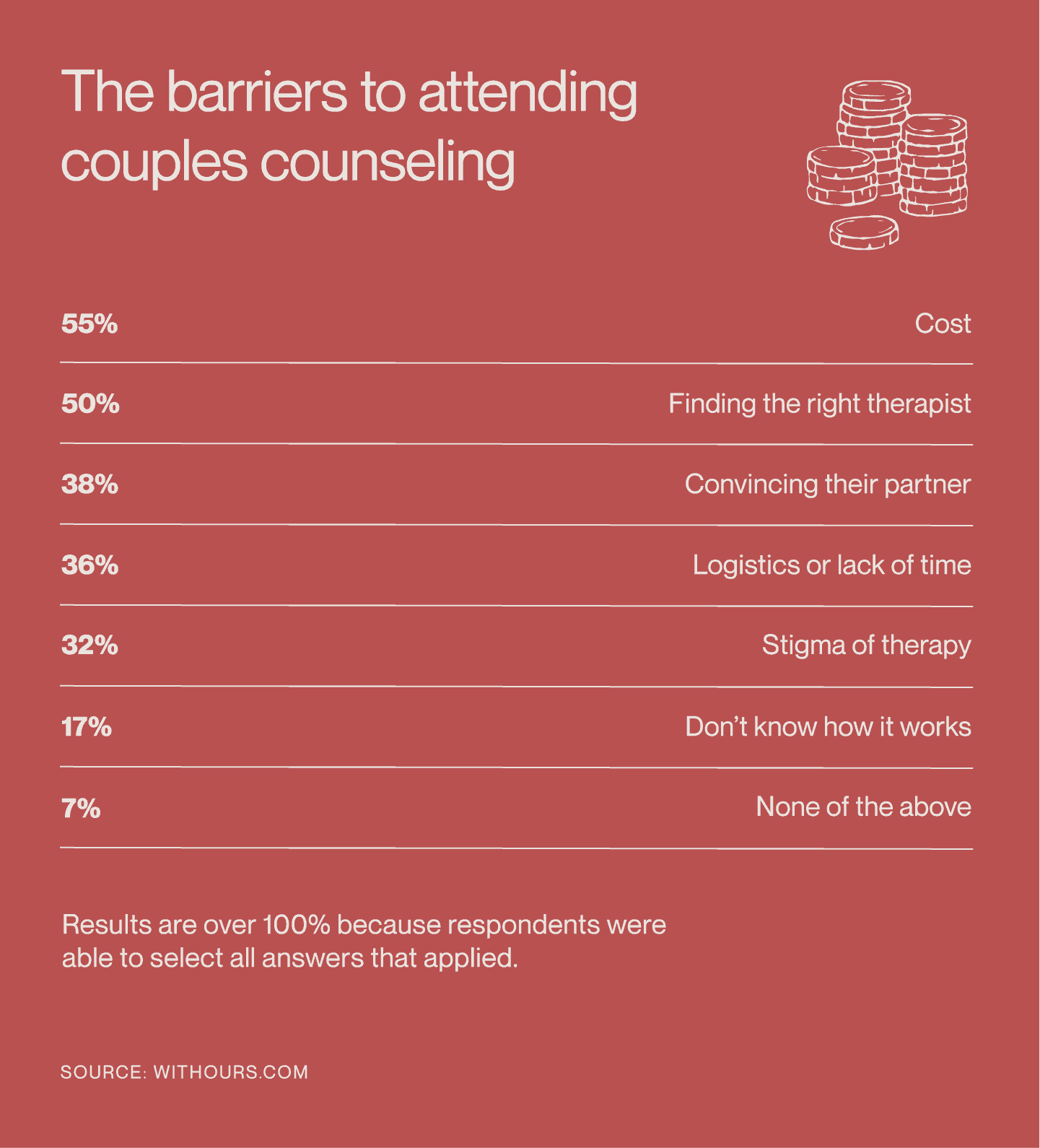
60% of respondents believe the stigma around couples therapy is decreasing
As you can see, the stigma of going to couples therapy is still a primary barrier, but more and more people think it’s getting better.
- Nearly 60% of the respondents said they somewhat or strongly agreed that the stigma around couples counseling is decreasing. (Ours)
- Of those who have attended couples counseling, 77% said they’ve talked to a friend about couples counseling or their desire to go. (Ours)
90% of respondents agree that their relationships and mental health go hand in hand
When you’re in love with someone, does your mental health correlate with the health of the relationship?
We asked our respondents how much they agreed with the following statement: “The health of my relationships is one of the most important factors for my mental and emotional health.”
- Almost 90% of our respondents, both men and women, agreed or strongly agreed. (Ours)
- Only 2% of the respondents said they disagreed, and the others were neutral on the topic. (Ours)
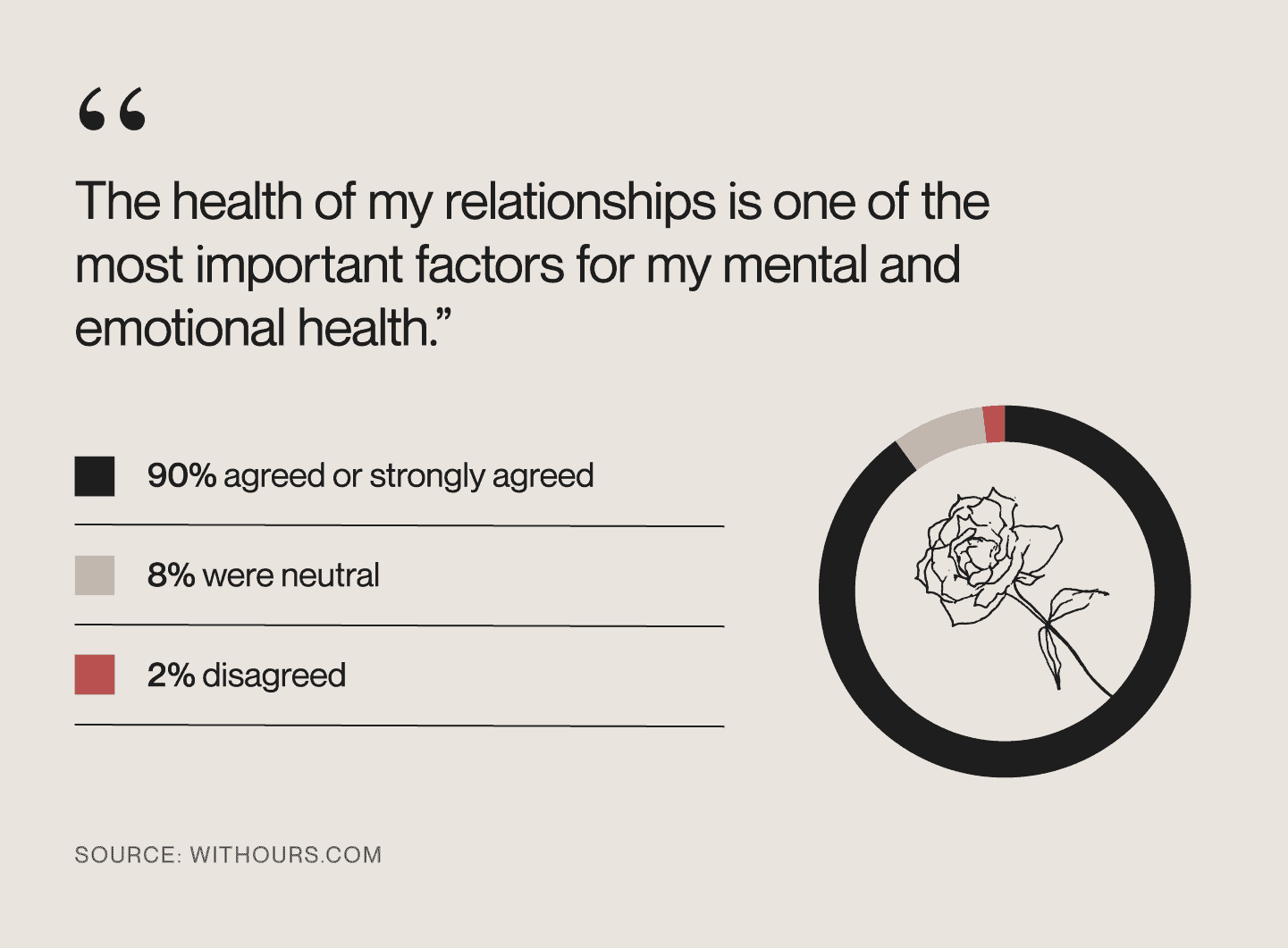
38% of people in relationships say the COVID pandemic brought them together
The height of the COVID-19 pandemic lasted for two years, and it was a primary source of stress for billions of people around the globe. We wanted to know how people in relationships did during the pandemic and found the following:
- 38% of people said it brought them closer together. (Ours)
- 11% said it pushed them apart. (Ours)
- 21% said that it both brought them together and pushed them apart. (Ours)
- 21% said there was no impact. (Ours)
- Both men and women said the pandemic positively impacted their relationship, with 36% of women and 40% of men saying it brought them closer together. (Ours)
- When asked, 74% said they agreed with the statement, “COVID highlighted the importance of investing in our relationship and led us to be more intentional with our relationship health.” (Ours)
The majority of respondents say they need help with big relationship topics and conflict
Regardless of the health of your relationship, difficult conversations and conflicts will eventually arise. This is why The Gottman Method form of couples counseling puts a major focus on learning how to resolve conflicts and avoid them in the future. One issue is that many couples simply don’t know how to discuss important topics like finances, children, and household roles.
- 71% of people said they wish they had more information about how to talk about conflict and other big relationship topics. (Ours)
- 68% of women and 73% of women said they struggled with conflict and big relationship topics. (Ours)
If you’re struggling with having difficult conversations or managing conflict, give couples counseling a try.
97% of people say how much money a potential partner makes can be a dealbreaker
Dating in 2023 also had plenty of interesting statistics. The following statistics discuss what people are looking for in long-term, committed relationships. If you met your partner in 20233, you may be able to relate to some of this data.
- Roughly 52% of people who have never been married are the most likely to have used an online dating site or app. (Pew Research Center)
- 36% of the people who started using the dating app Bumble, a dating app where women get to message men first, were first-time users going into 2023. (Bumble)
- 45% of college-educated women said they’re single primarily because they can’t find someone who meets their expectations. 33% of men listed the same reason. (Survey Center on American Life)
- The long-distance relationship statistics show that 33% of people are open to dating someone who lives in another city. (Bumble)
- About 32% of men said they’d be less likely to date a woman who is much taller than they are. (Survey Center on American Life)
- 97% of single adults say the biggest deal breaker in a potential partner is the person making significantly more money than them. 86% said making significantly less money was a dealbreaker. (Pew Research Center)
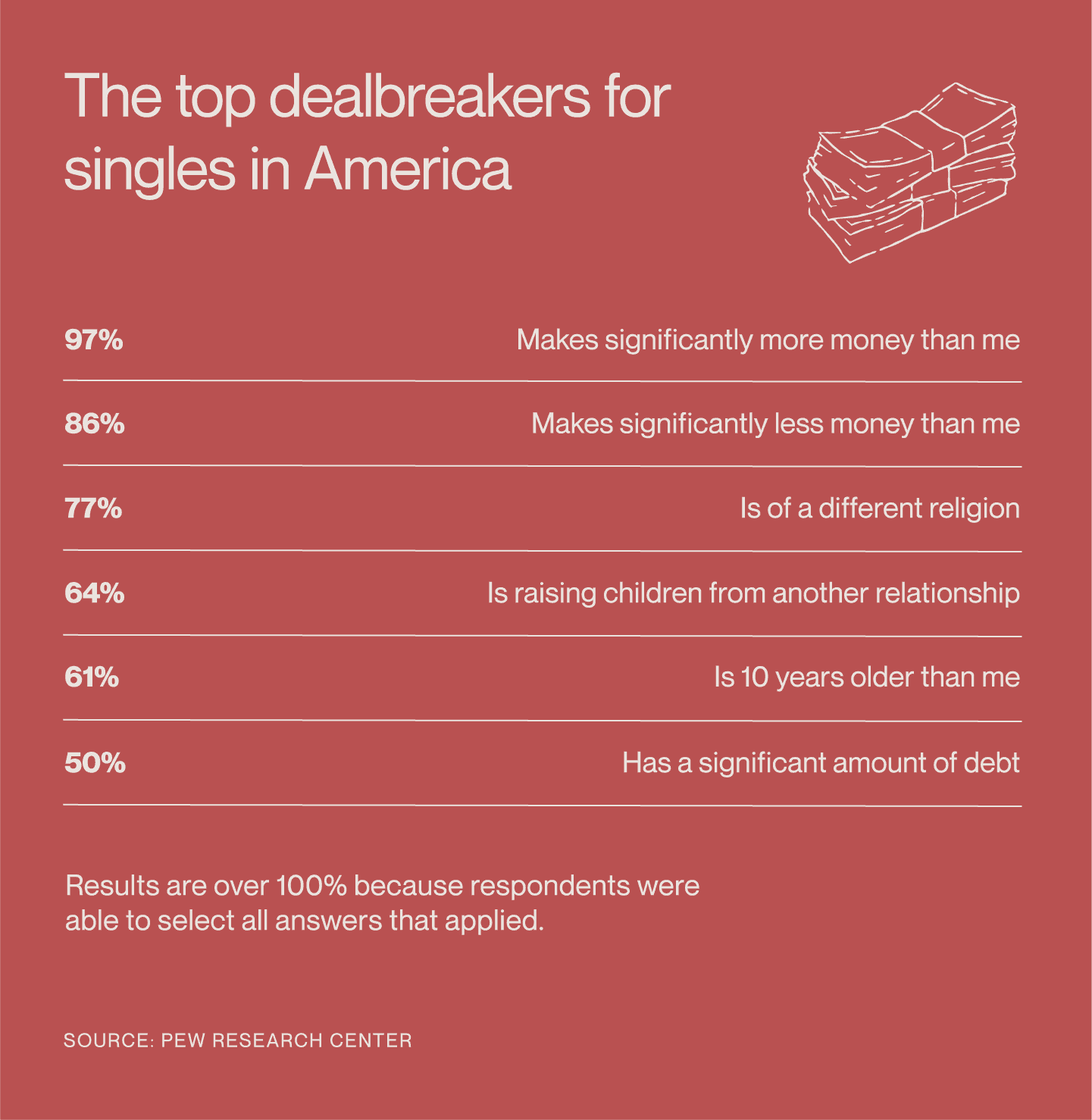
32% of people in relationships met their partner through family or friends
Depending on the demographic, some means of finding a partner are more effective than others. Some people meet their partner through work or school, and some find more success online. Pew Research Center conducted a survey to see where different types of people met their partners.
| Online | Through family or friends | Through work | Through school | |
| All partnered adults | 12% | 32% | 18% | 17% |
| Ages 18-29 | 21% | 31% | 13% | 25% |
| Ages 30-49 | 15% | 34% | 17% | 15% |
| Ages 50-64 | 8% | 30% | 21% | 16% |
| Ages 65+ | 5% | 30% | 20% | 15% |
| Straight | 11% | 32% | 19% | 17% |
| Gay, lesbian, or bisexual | 28% | 24% | 15% | 16% |
The top reason Americans get married is to commit to each other
Although marriage rates have declined over the years, there are still millions of married couples throughout the United States. The following data shows which states have the highest marriage rates, the primary reasons for marriage, and more.
- Utah has the highest marriage rate at almost 43 marriages per 1,000 people. (BGSU)
- New Mexico has the lowest marriage rate at just over 20 marriages per 1,000 people. (BGSU)
- 86% of Americans say they’re happy they got married. (Clever)
- Americans say the top reasons for getting married are to commit to each other (73%), to show love (67%), and to have children (29%). (Clever)
- 32% of millennials said the top deal breaker that would prevent them from marrying their partner was if they were rude to service workers. (Clever)
Improve your relationship with couples counseling
Despite most respondents seeing value in couples counseling, only about one-third have given it a try, and one of the biggest overall barriers is trying to find the right therapist.
If you’re interested in giving couples counseling or premarital counseling a try, Ours ensures that you don’t have to worry about finding the right therapist. Ours is a virtual couples counseling platform with a wide range of qualified and experienced therapists. Rather than having to find the right therapist, after you fill out our questionnaire, we hand-match you with the therapist who’s right for you and your partner.
Strengthen your relationship with couples counseling
Methodology
Participants were sourced through Cint (see more details in the ‘About Cint’ section). Participants were ages 26-40, from the United States, and self-identified as being in a relationship. The survey sample was census-balanced across the age range and across the geographic regions within the United States.
Total survey respondents totaled 539. The survey was fielded and completed in April 2022. Of the 539 respondents, 401 of respondents identified as female, 134 identified as male, and 4 identified as third gender/nonbinary.
For the census-balanced results for gender, responses from the male population and female population were weighted 51% male / 49% female based on the Statistics Times data for United States male and female population for the age group 25-39 (referred to throughout as “population”). Given the size of the sample (particularly for the male responses), results should be taken as directional for the total population.
Of the respondents, 67% were married or were in long-term committed partnerships, 7% were engaged, 18% were dating seriously (living together), 4% were dating seriously (not living together), and 3% were casually dating. 83% of respondents identified as being heterosexual.
About Cint
The panels that are integrated into the Cint platform/make up the Cint sample ecosystem are carefully selected and vetted supplemental permission-based sample sources. Those panel partners source participants/panelists through a variety of methods in order to help build diverse, representative, engaged panel communities. Over time, each panel builds more and more detailed profiling points on each individual, and the Cint platform uses this deep information to facilitate matching the right active, engaged participants/panelists with the right surveys.
Some of the recruitment methods used by panel partners include: Online recruitment through the owner’s portal which includes: (1) brand communities and (2) digital media and publisher sources; email recruitment through a panel owner’s newsletters; specific invitations sent to a panel owner’s database; email recruitment using a permission-based database; social networks; loyalty websites; affiliate traffic; telephone-based recruitment; and face-to-face (F2F) based recruitment.
All participants/panelists available through the Cint platform are subjected to comprehensive quality checks to ensure clients get the highest quality outcomes.
About Arch Insights
Arch Insights, LLC. is a consumer insights firm focused on providing clients with more efficient and effective consumer insights. Research protocols are built from years of experience in consumer insights, brand building, consulting, and industry research. Founder’s experience includes Bain & Company, Harry’s Inc., Torch Capital, and Harvard Business School. For more information, visit archinsights.com.



